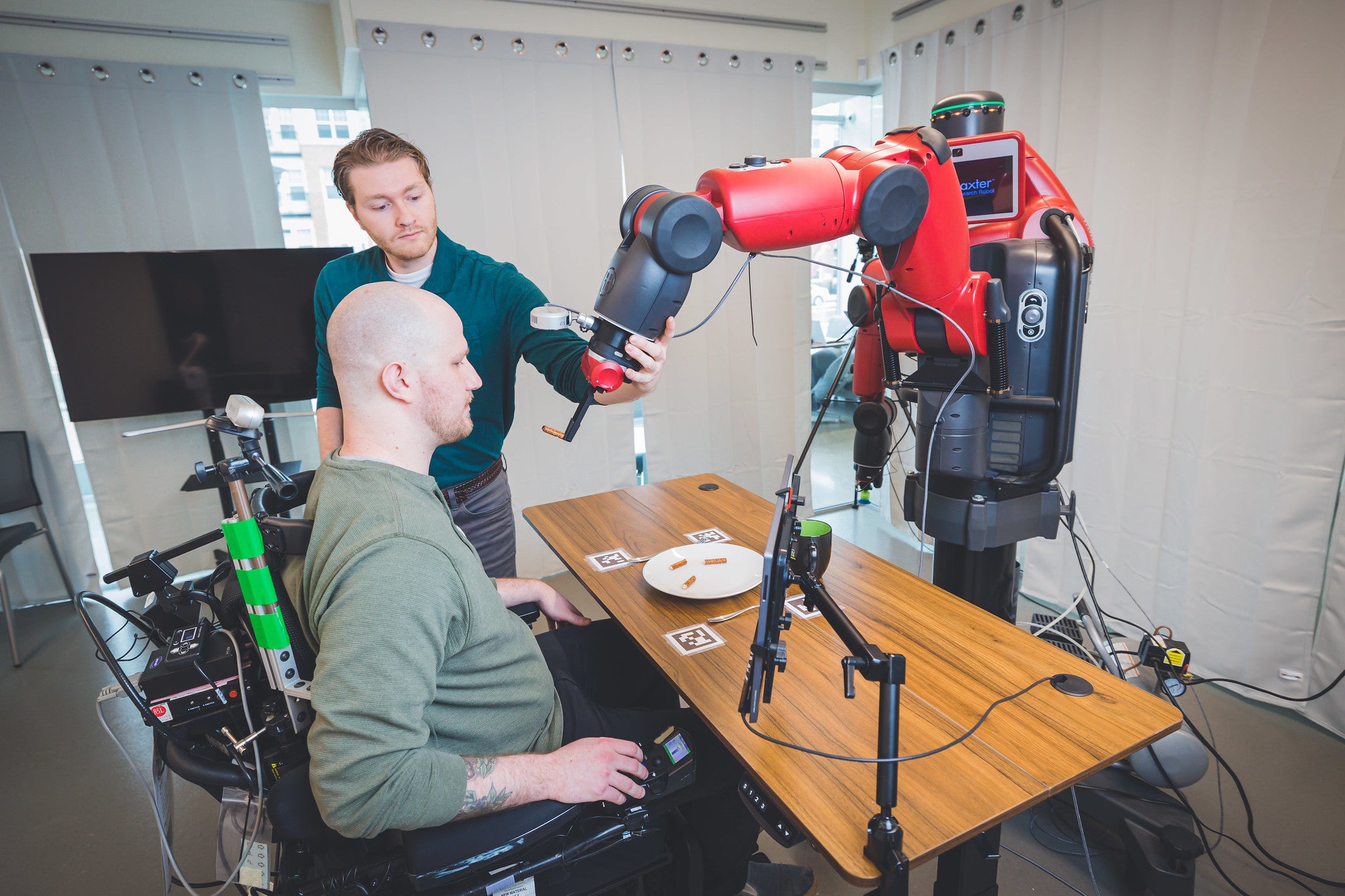CSU LANDS $2M GRANT FOR HUMAN-MACHINE SYSTEMS FOR PHYSICAL REHABILITATION
National Science Foundation funding supports assistive technology to aid people with disabilities
An interdisciplinary team at Cleveland State University has been awarded a $2 million grant from the National Science Foundation (NSF) for work on Human-Machine Systems for Physical Rehabilitation and research-inspired teaching around those assistive technologies for people with disabilities to improve their creation, functionality and retained use.
"There is a compelling national need for advanced research to develop technology for people with disabilities," said Eric M. Schearer, Ph.D., associate professor of mechanical engineering at CSU's Washkewicz College of Engineering and the team's Principal Investigator (PI).
"This technology can help us significantly improve people's lives -- preventing falls, restoring motor function after paralysis and regenerating muscle after traumatic injuries," Dr. Schearer added. "Despite the development of impressive devices, people with disabilities abandon assistive technologies at alarmingly high rates—largely because their perspectives are not included in the development process."
Barriers to continued use include privacy concerns, suitability of the technology for daily usage, trust in the devices themselves, stigma surrounding them, and a lack of overall training. These can be overcome through better collaboration between developers and potential device users through the NSF Research Traineeship (NRT) program outlined in the grant.

Dr. Schearer is one of the team's ten core participants, with membership spanning CSU's mechanical engineering, health sciences, urban studies, biomedical engineering and computer science divisions.
The team is rounded out by Brian Davis, Ph.D.; Debbie Espy, PT, Ph.D.; Kelle DeBoth, Ph.D., OTR/L; Nicholas Zingale, Ph.D., Prabaha Sikder, Ph.D.; Chandra Kothapalli, Ph.D.; Hanz Richter Ph.D., and Hongkai Yu, Ph.D., Andrew Slifkin, Ph.D., Doug Wajda, Ph.D., Gina Kubek, OTD, April Yorke, Ph.D., Anne Su, Ph.D. and Josiah Owusu-Danquah, Ph.D., as well as Gemma Jiang, Ph.D. (Colorado State University).
The long-term vision is for engineers, therapists, psychologists and urban experts to collaborate on physical rehabilitation teams that create technologies empowering people with disabilities—thereby creating more inclusive, cross-functional "wraparound" models around them.
"This [NRT] program seeks to support novel models of interdisciplinary research-based graduate education, with the aim of producing future scholars who can bring together innovative ideas from multiple disciplines to significantly advance convergent scholarly research," said Nigamanth Sridhar, Ph.D., interim provost and senior vice president of academic affairs at CSU. "This project is a true representation of such a novel model and CSU is incredibly proud to lead on this national stage."
This article originally appeared on the CSU website.
About CSU and the Washkewicz College of Engineering
Cleveland State University is a public institution located in Cleveland, Ohio. The university has an enrollment of more than 16,000 students in programs at the baccalaureate, masters, and doctoral levels. The university is accredited by the Higher Learning Commission and is currently awaiting reaffirmation of accreditation. Washkewicz College of Engineering offers graduate and undergraduate program. The undergraduate programs are accredited by the Accreditation Board for Engineering and Technology (ABET) (http://www.abet.org). To learn more about the College, please visit: engineering.csuohio.edu.
Contact Information
Mailing Address
Washkewicz College of Engineering
Cleveland State University
2121 Euclid Ave., WH 305
Cleveland, Ohio 44115-2214
Campus Location
Washkewicz College of Engineering
2300 Chester Avenue, WH305
Washkewicz Hall (WH) 305
Cleveland, Ohio 44115
Phone: 216-687-2555
Fax: 216-687-9280
engineering@csuohio.edu
Web Only: Contact
Phone: 216.687.2555
engineering.marketing@csuohio.edu